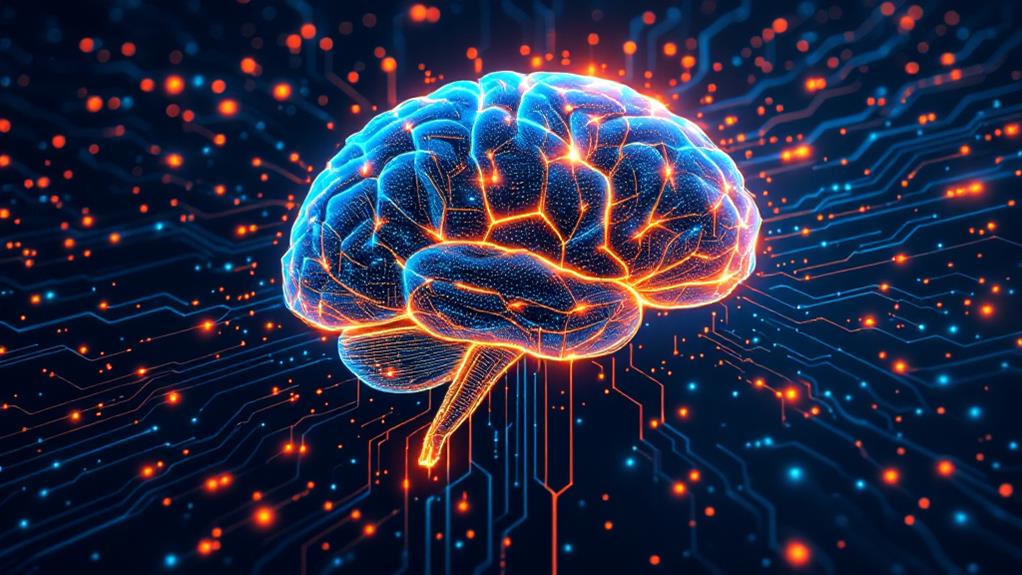The History of Logic: The Foundation of Reasoning and Critical Thinking

Logic's history spans millennia, shaping how we think and reason. It began in ancient civilizations, with early traces in Babylonian and Egyptian mathematics. Ancient Greece saw logic truly blossom, with Aristotle's syllogisms forming the basis of deductive reasoning. The Middle Ages refined these techniques, while the Renaissance and Enlightenment challenged traditional logic. The late 19th and early 20th centuries revolutionized logic with symbolic notation and mathematical methods. Today, logic extends beyond philosophy into computer science, AI, and everyday decision-making. As you investigate this rich history, you'll uncover the foundational principles that guide critical thinking in our modern world.
Ancient Roots of Logic
When we trace the origins of logic, we're delving into the foundations of human reasoning. The ancient roots of logic stretch back to early civilizations, where systematic thought began to emerge. You'll find early traces in Babylonian and Egyptian mathematics, but it's in ancient Greece where logic truly blossomed.
Greek philosophical debate laid the groundwork for formal logic. Thinkers like Socrates, Plato, and Aristotle developed methods of argumentation and reasoning that still influence us today. Aristotle, in particular, made monumental contributions with his development of Aristotelian syllogisms. These structured arguments formed the basis of deductive reasoning for centuries to come.
You'll see the impact of Greek logic in various philosophical schools that followed. The Stoics further refined logical principles, while Indian and Chinese philosophers independently developed their own logical systems. As you investigate this rich history, you'll probe how these ancient thinkers grappled with fundamental questions of truth, validity, and sound reasoning. Their work set the stage for the continued evolution of logic through the Middle Ages and into the modern era.
Medieval Developments in Reasoning
How did logic evolve during the Middle Ages? You'll find that this period saw significant advancements in logical thinking, building upon the foundations laid by ancient Greek philosophers. Medieval scholars, known as scholastics, refined and expanded logical techniques to address theological and philosophical questions.
You'll discover that syllogistic reasoning became a cornerstone of medieval logic. Scholars developed complex systems of categorization and inference, allowing for more intricate arguments. They also introduced new logical forms, such as the "square of opposition," which helped analyze relationships between propositions.
Scholastic disputations played a pivotal role in honing logical skills. These formalized debates required participants to defend their positions using rigorous logical arguments. This practice not only sharpened reasoning abilities but also led to innovations in logical theory.
During this period, you'll note the emergence of modal logic, which deals with necessity and possibility. Scholars like William of Ockham made significant contributions to this field, laying the groundwork for future developments in formal logic.
The medieval era's emphasis on logic profoundly influenced Western thought, setting the stage for the scientific revolution and modern philosophical inquiry.
Renaissance and Enlightenment Logic

Building upon the foundations laid in the medieval period, Renaissance and Enlightenment thinkers ushered in a contemporary period of logical inquiry. During this era, you'll find that logicians began to challenge and expand upon traditional Aristotelian logic and syllogistic reasoning.
Renaissance scholars like Petrus Ramus proposed new methods of organizing knowledge, emphasizing practical applications of logic. In the 17th century, Francis Bacon introduced his inductive method, shifting focus from deductive reasoning to empirical observation.
The Enlightenment brought further advancements. Gottfried Wilhelm Leibniz envisioned a universal language of thought, laying groundwork for symbolic logic. René Descartes developed his method of systematic doubt, emphasizing clear and distinct ideas as the basis for logical reasoning.
John Locke's "Essay Concerning Human Understanding" investigated the relationship between language, logic, and knowledge. Meanwhile, Immanuel Kant's "Critique of Pure Reason" examined the limits of human understanding and the role of logic in cognition.
These developments marked a significant departure from medieval scholasticism, charting the course for modern logical systems and analytical philosophy. You'll see how this period's innovations continue to influence logical thought today.
Modern Formal Logic
The late 19th and early 20th centuries saw a revolution in logical thought, ushering in the era of modern formal logic. You'll find that this period marked a significant shift from traditional Aristotelian logic to more sophisticated systems. Groundbreaking work by mathematicians and philosophers like Gottlob Frege, Bertrand Russell, and Alfred North Whitehead laid the foundation for this new approach.
Modern formal logic introduced symbolic notation and rigorous mathematical methods to analyze arguments. You'll encounter two fundamental systems: propositional calculus and predicate logic. Propositional calculus deals with the relationships between simple statements, using symbols to represent logical connectives. Predicate logic, on the other hand, extends this framework to include quantifiers and variables, allowing for more complex reasoning about objects and their properties.
These developments revolutionized the field, providing powerful tools for analyzing language, mathematics, and scientific theories. You'll see how modern formal logic has applications in computer science, linguistics, and artificial intelligence. It's become an indispensable tool for precise reasoning and the foundation of many contemporary philosophical and scientific projects.
Logic in the Digital Age

Digital-age logic has altered the topography of reasoning and computation. You'll find that logic's role in the 21st century extends far beyond traditional philosophical discourse. It now underpins the very fabric of our digital world, from the algorithms that power search engines to the decision-making processes of artificial intelligence.
Algorithmic decision making has become ubiquitous in your daily life. Whether you're scrolling through social media, applying for a loan, or traversing through traffic, logic-based algorithms are constantly at work, shaping your experiences and choices. This pervasive influence has given rise to new ethical considerations and challenges in digital epistemology.
As you interact with smart devices and AI assistants, you're engaging with complex logical systems that interpret natural language and make inferences. These advancements have revolutionized fields like data analysis, scientific research, and cybersecurity. However, they've also raised concerns about privacy, bias, and the potential limitations of machine reasoning. Understanding the principles of digital-age logic is essential for navigating this new domain and critically evaluating the information and decisions presented by our increasingly intelligent machines.



